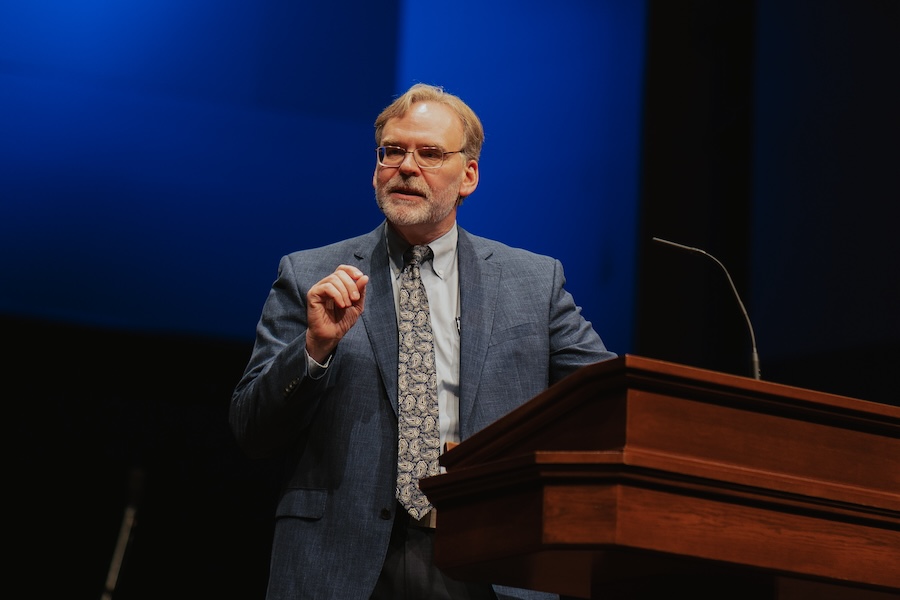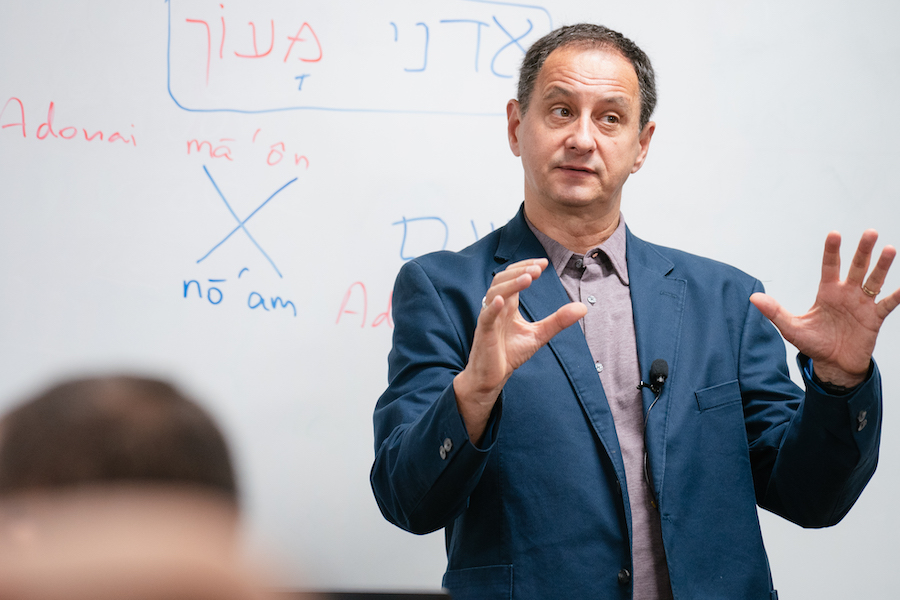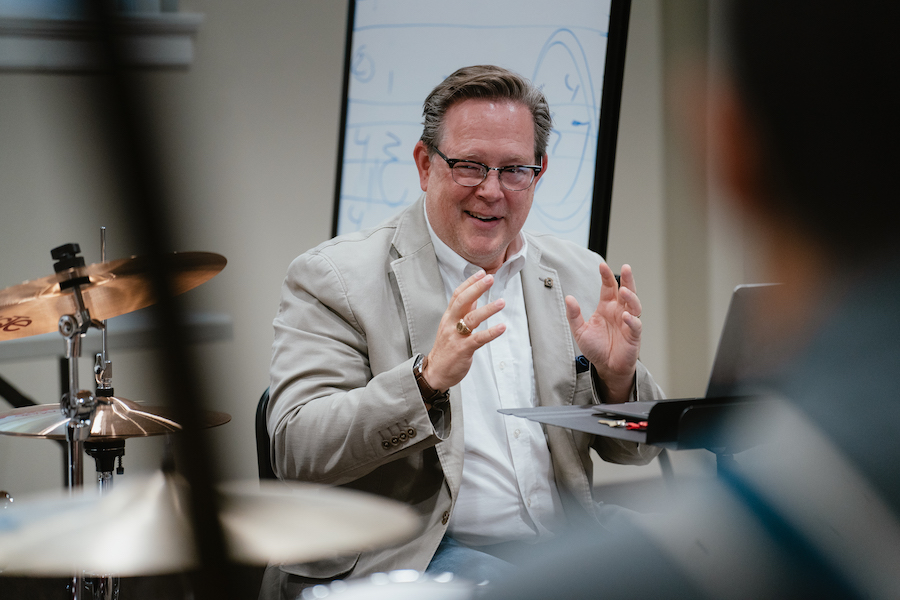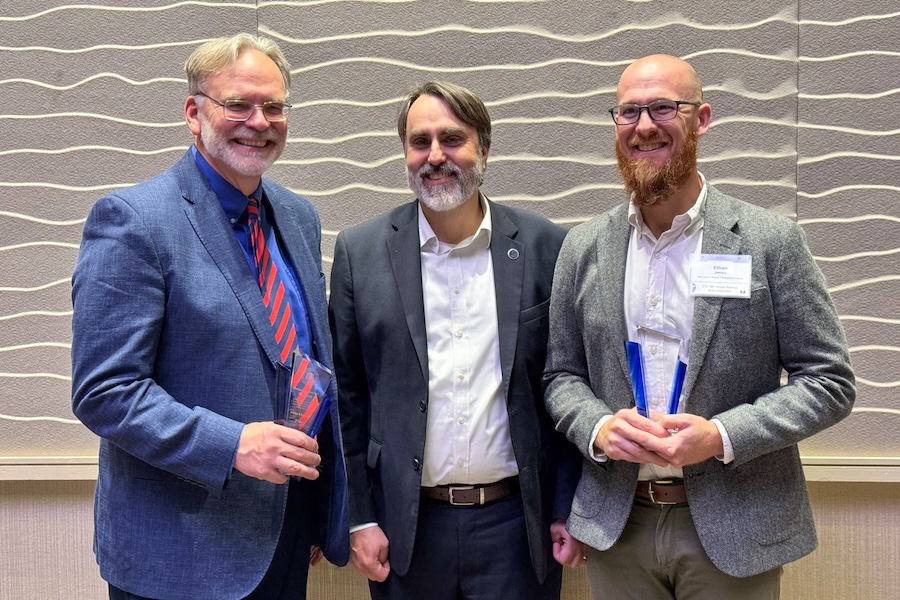From My Bookshelf: Understanding Our Souls
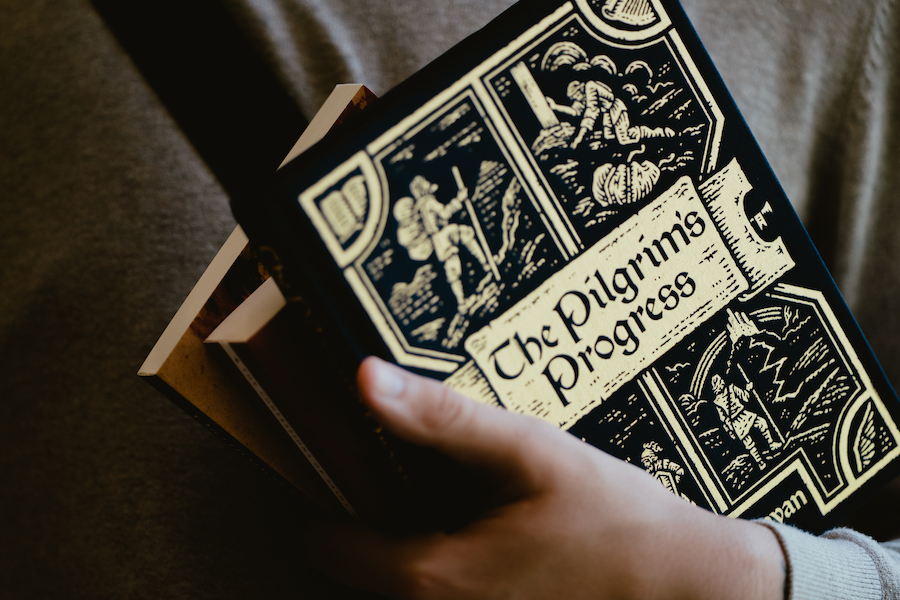
Coleman Ford, assistant professor of humanities at Texas Baptist College, gives his top five book recommendations to understand our souls. Ford began serving at Southwestern Seminary and Texas Baptist College in 2020.
Confessions by Augustine of Hippo – Confessions is a timeless classic that tells the story of every soul in need of God’s grace and redemption. Augustine’s spiritual journey demonstrates the fruitless nature of worldly philosophies and the power of God’s Word for transformation. It is a model for understanding the interior life of the Christian in conversation with the God who made them.
City of God by Augustine of Hippo – Though intimidating at first glance, City of God is a tome to explain the perpetual struggle of man and manmade systems apart from God’s ultimate design and direction. Augustine presents a Christian philosophy of history as well as a comprehensive work of Christian worldview which has shaped the western tradition since its inception. It explains both the identity of the church (heavenly citizens) as well as the folly putting hope in anything other than the one true God.
The Pilgrim’s Progress by John Bunyan – Bunyan’s work, considered the first true English novel, is also one of the finest works explaining the Christian life. A beautiful allegory depicting the pilgrim Christian, and eventually his wife Christiana, and their pursuit away from the City of Destruction to the Celestial City and all the characters they encounter along the way. This work is even more poignant when one discovers that Bunyan wrote this timeless piece of English literature while in a jail cell; arrested for preaching without a license!
The Soul of the World by Roger Scruton – Roger Scruton, a philosopher specializing in aesthetics, presents a discerning cultural critique of our secular age. Scruton observes that, despite attempts to the contrary, the epistemology of modernity cannot debunk the deeper metaphysical and spiritual urges within mankind. Scruton looks at art, music, architecture, and literature to show how mankind desires transcendence that only religious experience can deliver.
Heretics and Orthodoxy by G.K. Chesterton – Chesterton has a witty and readable style that makes his work both compelling and enjoyable. These works, generally separated into different volumes, really should be read together. Heretics discusses how the prevailing ideas of modernity–relativism, individualism, and others–are destructive, rather than productive, to society. Orthodoxy continues the cogent response to modernity by showing how Christianity is the best explanation for what is true, good, and beautiful.
